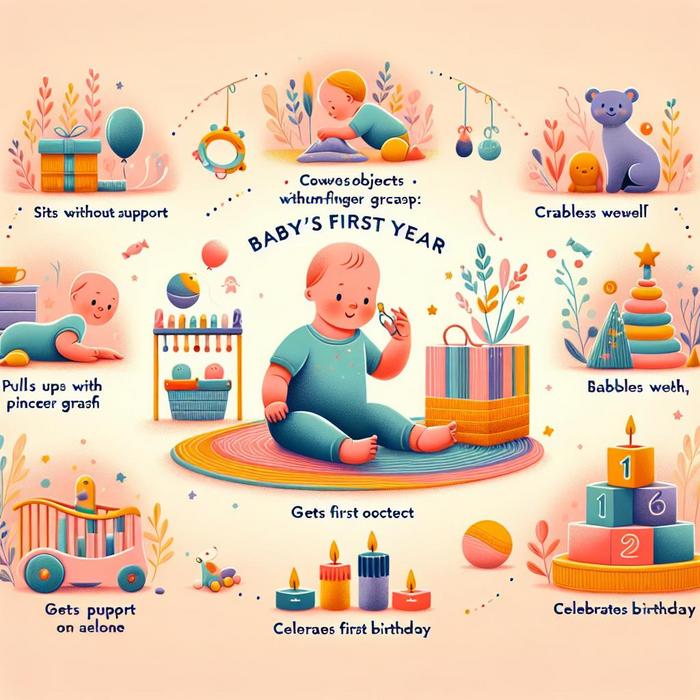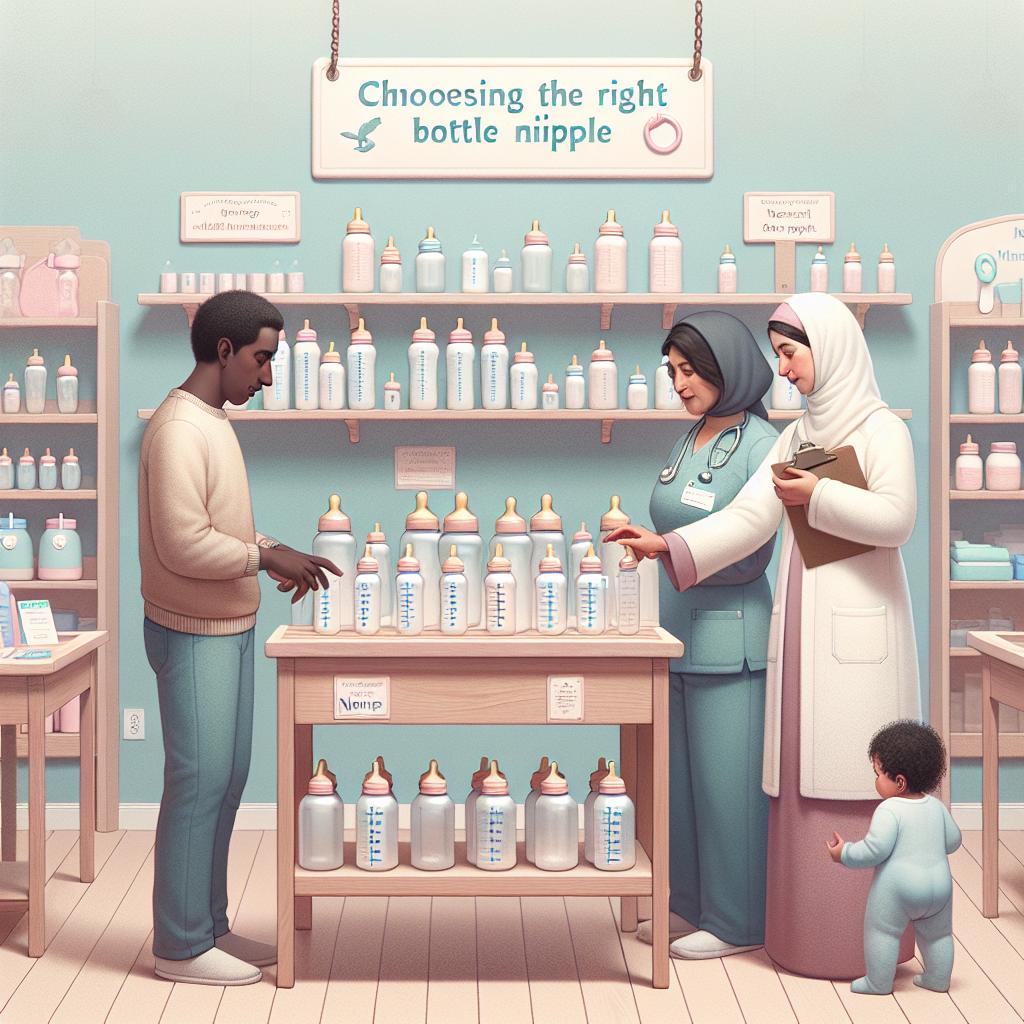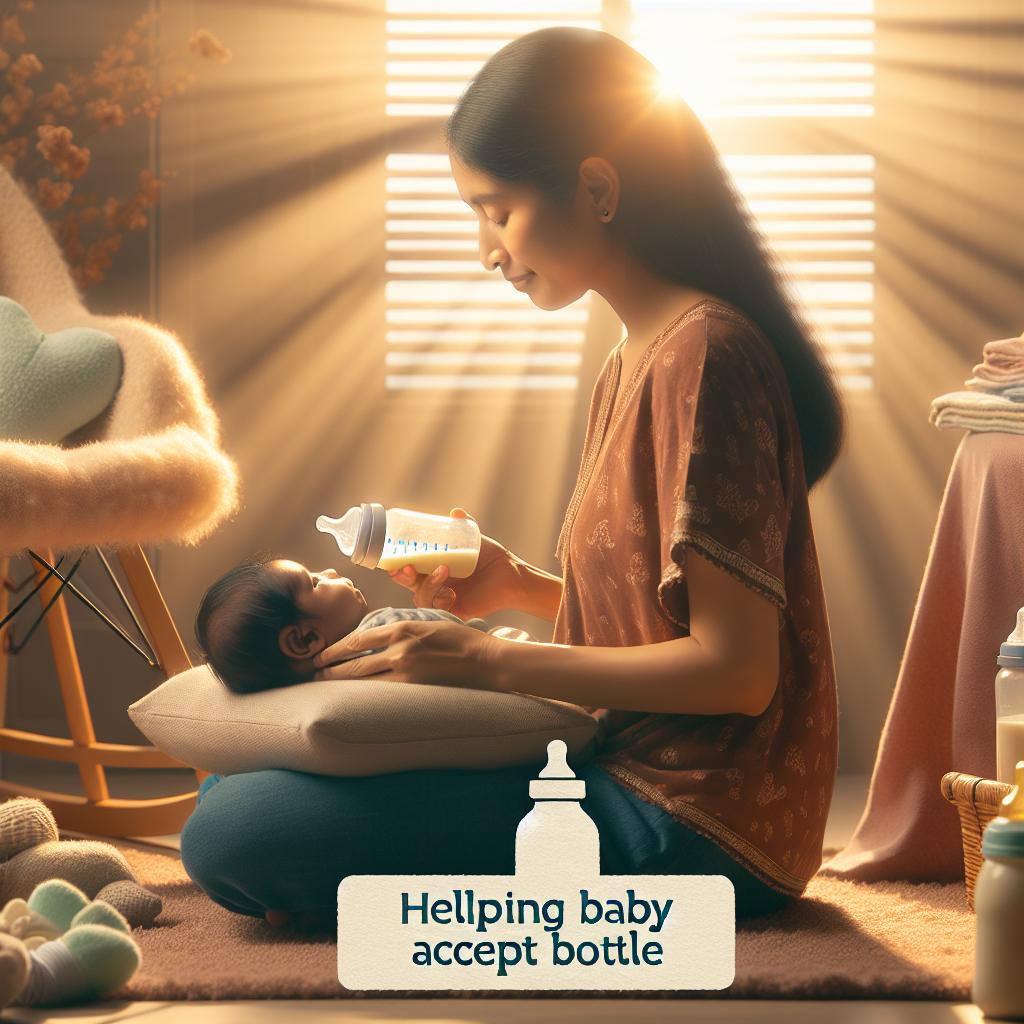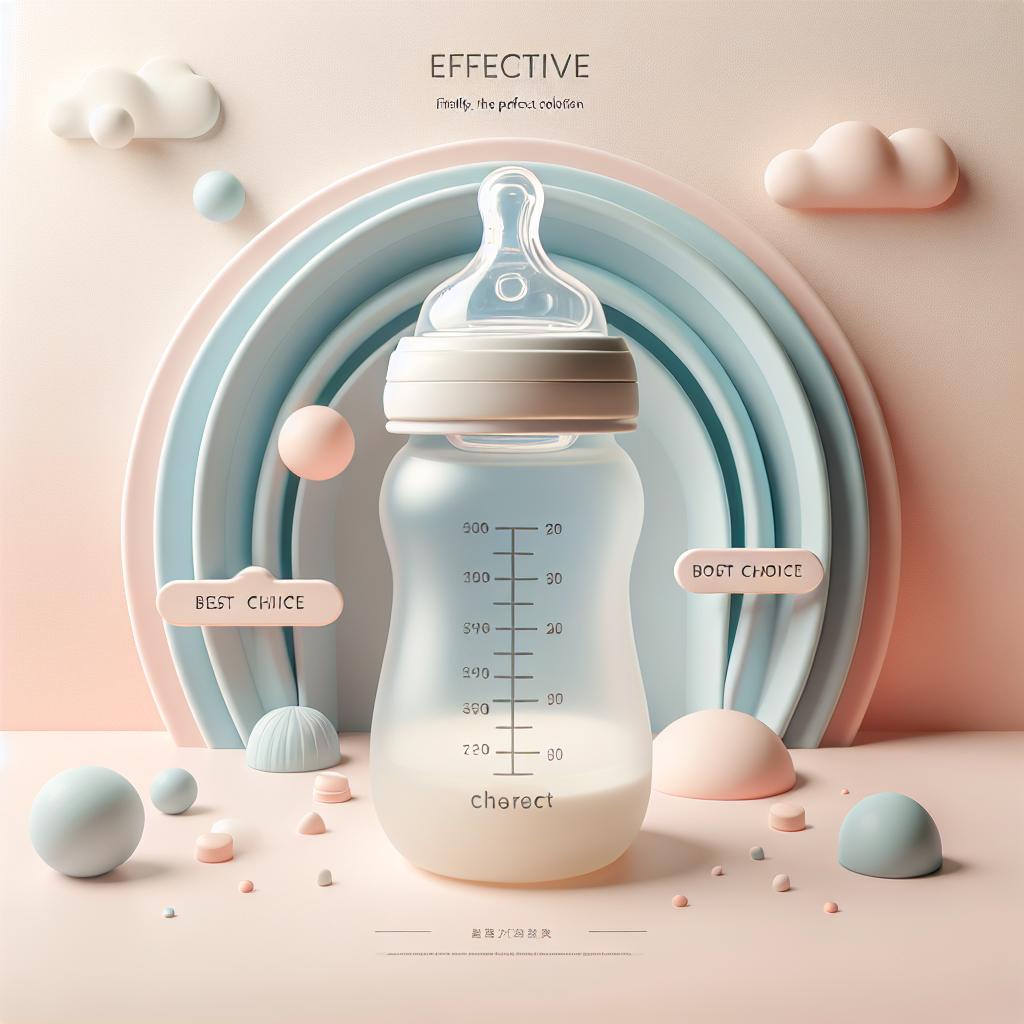Understanding The Journey of Your Baby’s First Year
You’ve brought your bundle of joy home, and the real journey begins. Understanding baby milestones in the first year is an exciting yet bewildering experience for new parents. It’s like learning an entirely new language, and it’s one that changes every month.
Every parent wants to ensure their child is developing at a healthy pace. However, it’s essential to remember that every baby is unique and will progress at their own rate.
Why Baby Milestones Matter
The first year milestones are critical because they help parents and health professionals track your baby’s development. The milestones are checkpoints, indicating whether your baby’s growth is on the right track.
Baby development in the first year involves a series of physical, cognitive, and social changes. These changes help your baby to interact with the world around them.
Here are several key reasons why you should monitor your baby’s milestones:
- Early detection of developmental delays: Regular monitoring helps you recognize if your baby is not meeting milestones. This could indicate developmental delays or health issues.
- Establishing a strong bond: When you understand your baby’s developmental stages, you can interact more effectively with him or her, fostering a strong bond.
- Helping your baby’s development: Knowledge of each stage of development can guide you on how to stimulate your child appropriately, contributing to improved growth and development.
The Major Milestones in the First Year
Let’s review the main first year milestones. These are based on averages, so don’t worry if your baby achieves them slightly earlier or later.
At 3 months
- Starts to support the head and chest while lying on their stomach.
- Begins to develop a social smile.
- Can recognize familiar faces and sounds.
- Starts to babble and imitate some sounds.
At 6 months
- Begins to sit without support.
- Starts eating solids.
- May start to show signs of separation anxiety.
- Begins to recognize own name.
At 9 months
- Begins crawling.
- May start to show stranger anxiety.
- Starts to understand the meaning of the word ‘no’.
- Begins to use fingers to point at objects.
At 12 months
- May start to walk.
- Begins to say a few simple words.
- May show preferences for certain foods.
- Starts to explore objects in different ways, like shaking, banging, and throwing.
Remember, these are just general markers. Every baby matures at their own pace. If you are worried about any aspect of your baby’s development, it’s best to consult with a professional.
How to Nurture Your Baby’s Development
Nurturing your baby’s development in the first year is about more than just tracking milestones. It also involves creating a supportive and engaging environment for your little one to explore.
From tummy time to playing peekaboo, parent-child interactions are crucial in stimulating your child’s growth. Engage your baby with colorful toys, sing songs, and read books – even if they can’t comprehend the stories yet. Simple activities like these help in developing the brain and enhancing motor skills.
Tools and Resources for Tracking Your Baby’s Milestones
Fortunately, we live in an era where technology can lend a helping hand. There are numerous modern tools available that make tracking your baby’s development easier. Apps like BabySparks and The Wonder Weeks offer personalized plans to help stimulate your baby’s growth based on their unique development pace.
Likewise, resources from trusted healthcare providers, such as the Michigan Department of Health, provide detailed milestone checklists along with tips on fostering growth in each stage.
Remember, recognizing your baby’s development milestones is not just about ticking off a checklist. It’s about celebrating the small victories, witnessing your little one’s exploration of the world, and growing together as a family.
Supporting Your Child’s Growth
One of the most critical aspects of enhancing your baby’s development is by being an active participant in their learning process. Babies are eager learners, and they rely on their parents for guidance, security, and stimulation. Here are a few tips on how you can effectively support your baby’s growth:
- Keep Communication Open: Talk to your baby often, even if they can’t talk back yet. This helps them understand tone, rhythm, and the emotion behind words. Reading books aloud also contributes to their language development.
- Physical Exercise: Leaving room for physical exercise such as tummy time, helps to build strength in their neck, shoulders, arms, and trunk. Various physical activities also help to bolster motor skills development.
- Interactive Toys: Use toys that appeal to your baby’s senses. These can encourage curiosity, exploration, and fine motor skill development.
- Emotional Support: Frequent cuddling and positive physical contact help your baby to feel secure and loved, aiding their emotional and social growth.
When to Consult a Professional
If you notice your child is significantly lagging behind in achieving their major milestones, it’s important to consult a healthcare provider. You should be alarmed if, for instance, your baby doesn’t make eye contact by three months or they are not able to sit without support by nine months. Other warning signs can include not responding to loud sounds, not smiling or showing joy, and not reaching for objects by six months. At such times, consulting sites such as WebMD or speaking to a professional can provide the guidance you need.
Baby’s Milestones and Parenting Community
Raising a child is a shared experience, and it can immensely help to join a parenting community. The benefit that comes with connecting, sharing and learning from others in a similar situation, as well as professionals offering tips and guidance, can be invaluable. March of Dimes, for example, provides numerous resources and an active community.
Other informational sources like milestone charts, articles, and parenting guides can also provide much-needed clarity and reassurance during your journey through their first year.
Nurturing a Life-Long Bond with Your Baby
Fostering growth and development in your infant is not just about achieving milestones; it’s about building a unique relationship with your child. Seeing them grow, adapt, and develop is one of the most rewarding parts of parenthood.
As an integral part of your child’s growth and development, you’re encouraged to celebrate each small win, no matter how insignificant they may seem. Each milestone is an embodiment of your child’s blossoming personality and emerging abilities.
The bottom line is, being there for your child, making them feel loved and secure, and engaging them in stimulating activities can significantly set the tone for their future developmental journey. Nurturing your baby’s first-year development sets the foundation of a treasured relationship that transcends lifetimes.







